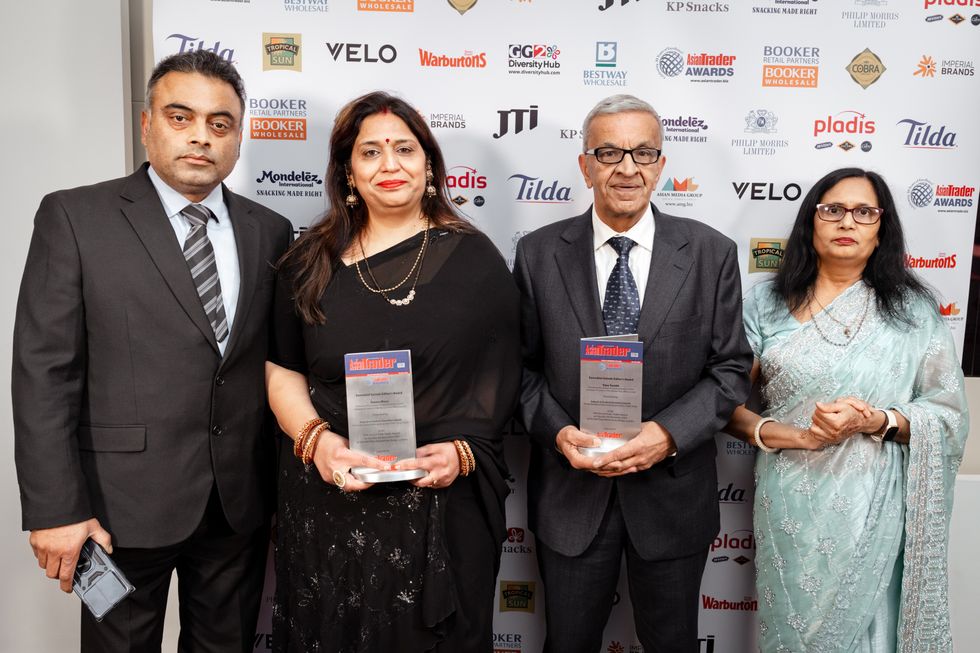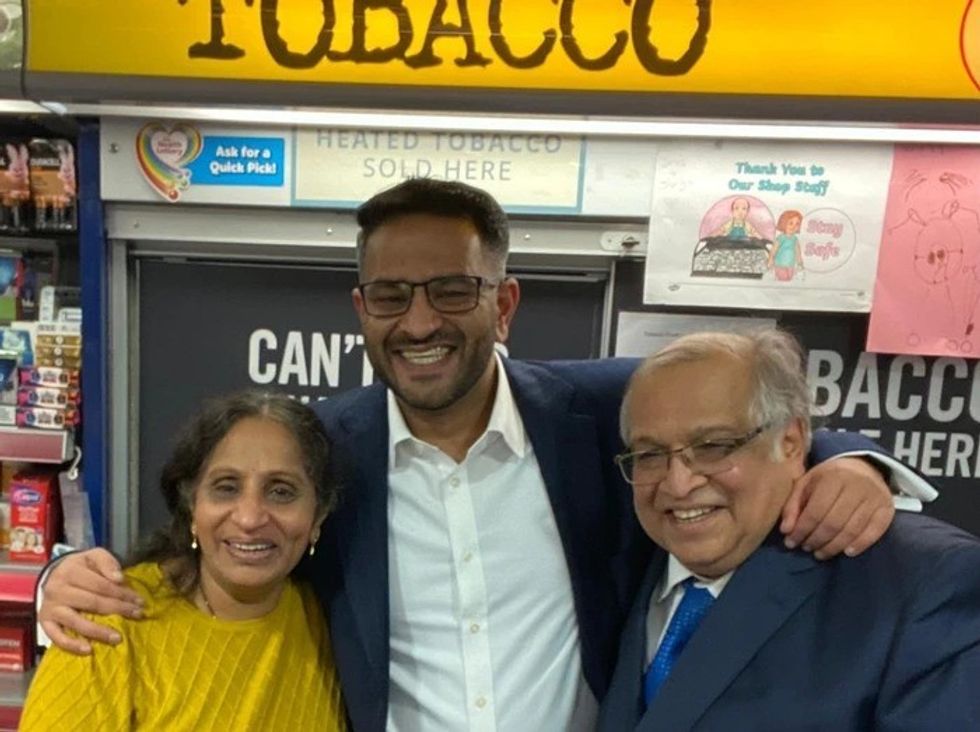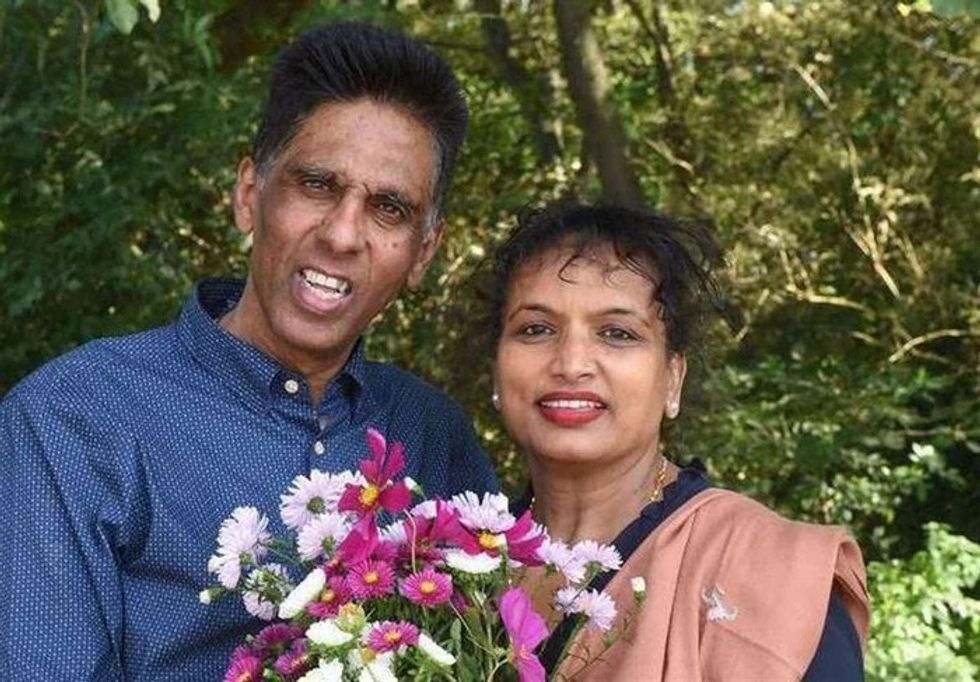By Barnie Choudhury
ASIAN law enforcers and parliamentarians have warned that Britain will lose yet another generation to structural racism and inequality if the government does not “get a grip”’ and carry out some of the hundreds of recommendations from previous race inquiries.
They have told Eastern Eye that a “club culture” exists where black and Asian people are locked out of top jobs.
The former chief prosecutor in the northwest of England, Nazir Afzal, said that even when black, Asian and minority ethnic (BAME) professionals reach senior positions in their fields, they have responsibilities but no power to change the culture of racism or inequality.
“The chief crown prosecutor is a really responsible role, but I didn’t have the power,” Afzal explained.
“The power lay in the hands of the director of public prosecutions.
“There’s a big difference between showing what looks like diverse institutions, but actually retaining power in the hands of the white mainstream.”
Judges, parliamentarians, civil servants and those in the arts and sport are now increasingly questioning who holds real power in Britain, and whether black and Asian people are being excluded.
Britain’s former highest-ranking south Asian civil servant, Sir Suma Chakrabarti, was a permanent secretary at the Ministry of Justice. Sir Suma is the outgoing president of the European Bank for Reconstruction and Development.
“Fundamentally it reflects the pace with which society changes and where power resides,” he said.
“Ethnic minority representation reflects the fact that many ethnic minorities do not have as much power and say in the society that we live in. That is changing, clearly.
“But it’s going to be at least another generation before we really see more black and minority ethnic people come to the top of organisations and into boards. That doesn’t mean we should just wait.”
Black and Asian campaigners have spent the past four weeks calling for urgent action to end racism in British institutions as part of the Black Lives Matter protests, following the killing by a white police officer in Minneapolis of the black American man George Floyd.
Senior management teams need to review “unconscious bias” towards BAME workers and examine diversity statistics in upper echelon roles, said the shadow employment minister and Labour MP for Feltham and Heston, Seema Malhotra.
“It kind of goes in cycles. There needs to be much more of a grip on this from within government. I think what we’ve seen over the last 10 years is the dismantling of some of the progress that was made by Labour, particularly looking at things like diversity on public boards. You dismantle because you think it’s not an issue any more.”
The need for greater diversity in powerful positions was brought home this week when more than 3,500 actors, journalists television and film executives signed a letter demanding change in the industry.
Among the signatories are Meera Syal, Sanjeev Bhaskar, Asif Kapadia and Gurinder Chadha.
They wrote, “As one extended community, we require your active engagement to tackle structural and systemic racism in our industry, in the UK and around the world. Banish ‘we already have a diverse project on our slate’. There is room for more than one. You make countless projects with similar themes and storylines with white creatives.”
Malhotra thinks the media should also reconsider how it covers stories on race and minority points of view.
“It doesn’t give coverage to things that minority MPs are doing. For some of the mainstream media, you have your friends to go to. So, there is something that should be done around media monitoring and coverage, as a kind of minority engagement with senior journalists. When it gets into really senior politics, a lot of decisions are made at very senior levels in club-like environments,” Malhotra said.
Last week, the government set up a new commission, headed by Number 10 special adviser, Munira Mirza, to investigate structural racism in the UK. But BAME lawyers and judges have also told Eastern Eye that Britain does not need yet another race inquiry while there are more than 200 recommendations from previous reviews to implement. They cited this January’s think tank Justice report Increasing Judicial Diversity: An Update as an example.
One said, “When it comes to the judiciary, the report by Justice has it very well set out. The report goes through everything. Only a third are female and seven per cent are BAME. The report makes several recommendations. No more inquiries are needed right now. Just get on and do the job.”
The need for action rather than another commission is echoed by Afzal, who points out that since 2017, the Conservative government has published at least three reports on racial inequalities.
“Speed is of the essence,” he said. “We will miss another generation if we’re going to wait for another review. Another set of inquiries, another set of reports, lives have been lost and they continue to be lost. Covid is a really good example. It’s not just biology or genetics. It’s about deprivation. It’s about the inner city lives we lead, multi-generational households. Those kinds of issues will take years to resolve.”
However, Afzal thinks the Crown Prosecution Service (CPS) is better than most institutions when it comes to diversity, paying the issue more than lip service.
He said, “When I left in 2015, half the chief crown prosecutors in the country were black and minority ethnic at six out of 13. Compare that to no chief constables out of 43. No member of the parole board out of 240. Very few in the higher judiciary, very few in the higher magistracy, very few in the senior management of probation.”
But it was not always the case, said the former prosecutor. When he first joined the CPS in the early 1990s, Afzal was told that he “had to fit in”, which meant going to the pub most Friday evenings. Despite being a Muslim who did not drink alcohol, he felt obliged to go because the pub was the best place to hear about promotion opportunities. Even then, in 1998, he would be passed up because of his race, said Afzal.
“I should have been appointed. I wasn’t, but I didn’t want to stir things up and cause any problems. But somebody else who also went for the job took the board to a tribunal and won. They said that racism played a part in the decision making of that promotion board. So, I was a victim of it, although I didn’t take any action on it.”
Malhotra stressed that today’s problems with systemic racism is prevalent throughout British society.
“We need to admit there’s much more to do to, and start with the premise that there is a problem to solve about where power and privilege lie. Diversity and inclusion matter for the best decisions as well as for fairness. We need to talk about it and tackle it head on. Only then will we see the sustained change we need.”
Sir Suma has, though, welcomed the review, believing it to be an opportunity.
“If there is going to be a look at injustice and race issues, one of the things to be looked at is why the progress hasn’t been made and what can be done now to move forward,” he said.
But one source told Eastern Eye that those who do not want to employee black or Asians in top jobs have become cleverer in hiding the systemic racism. It is something with which Afzal agrees.
“In the last few years, I’ve been encouraged by people in government to apply for the independent chair of this or whatever. I apply, and it looks like I’m just making up the numbers. They can say one quarter of the final shortlist were from a minority, ie me, and then not appoint me,” he said.
“I don’t mind not being appointed. But I’m fed up of being told, ‘look Nazir, this shows how diverse we are’.”
Sir Suma confirmed he had heard of this happening. “I think the appointments people should be asked, why is this continuing to happen? We’ve all agreed this person is worthy of at least an interview, but they haven’t got this job three or four times now. What is the message to be given to that person? Or is it, what is the message to be given to us, as well as the appointing authority?
“It’s that sort of forensic chasing back we need more of to understand what’s going on in the system”.

















 Davindra and Seema Misra, and Vijay and Gita Parekh
Davindra and Seema Misra, and Vijay and Gita Parekh Varchas Patel with his father Vipin and mother Jayshriben
Varchas Patel with his father Vipin and mother Jayshriben Hasmukh Shingadia and his wife Chandrika were all victims of the Horizon scandal
Hasmukh Shingadia and his wife Chandrika were all victims of the Horizon scandal

During the hearing, Clifford denied all the charges except for the rape charge, which was added to the indictment at the session. (Photo: Hertfordshire Police /Handout via REUTERS)
Man pleads not guilty to murder of BBC presenter's family
A 26-year-old man has pleaded not guilty to charges of murdering the wife and two daughters of BBC sports commentator John Hunt in a crossbow and knife attack.
Kyle Clifford, who also faces charges of rape, appeared via video link at Cambridge Crown Court on Thursday.
Clifford, arrested in July after a manhunt, is charged with three counts of murder, one count each of rape and false imprisonment, and two counts of possessing offensive weapons – a 10-inch knife and a crossbow.
During the hearing, Clifford denied all the charges except for the rape charge, which was added to the indictment at the session.
He is expected to enter a plea for that charge at a later date.
The victims were Carol Hunt, 61, wife of horseracing commentator John Hunt, and their daughters Louise, 25, and Hannah, 28.
An earlier hearing revealed that Louise had been found tied up and that both she and her sister had been shot with a crossbow, while their mother had been stabbed with a knife.
The fatal attack occurred at the family’s home in Bushey, a commuter town near Watford, northwest of London.
(With inputs from AFP)